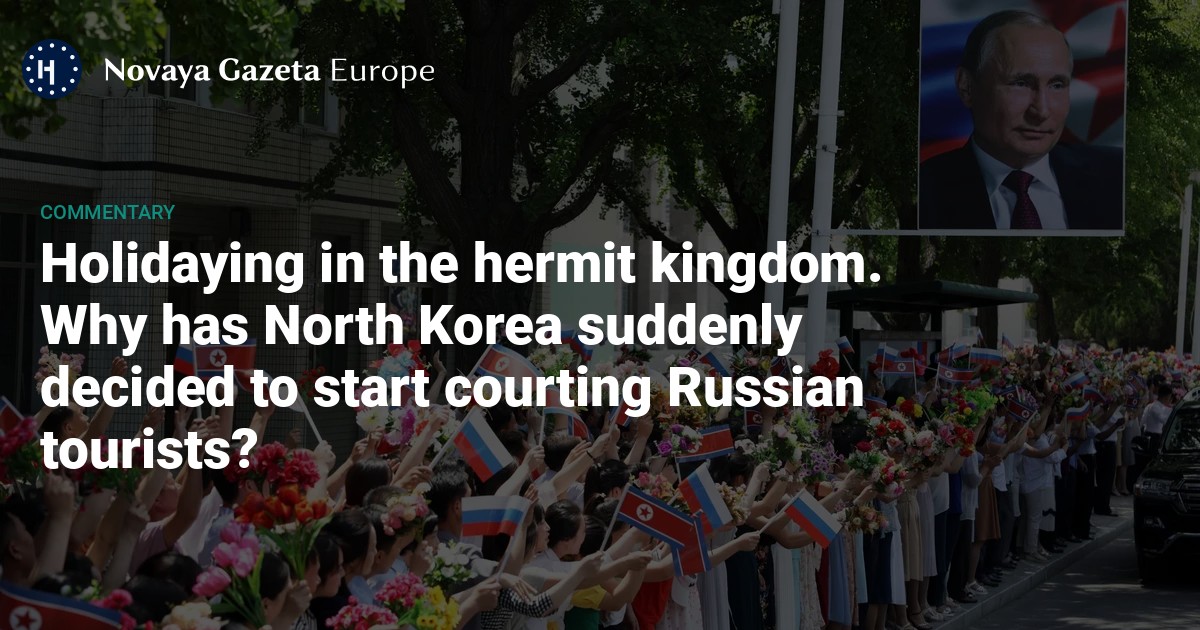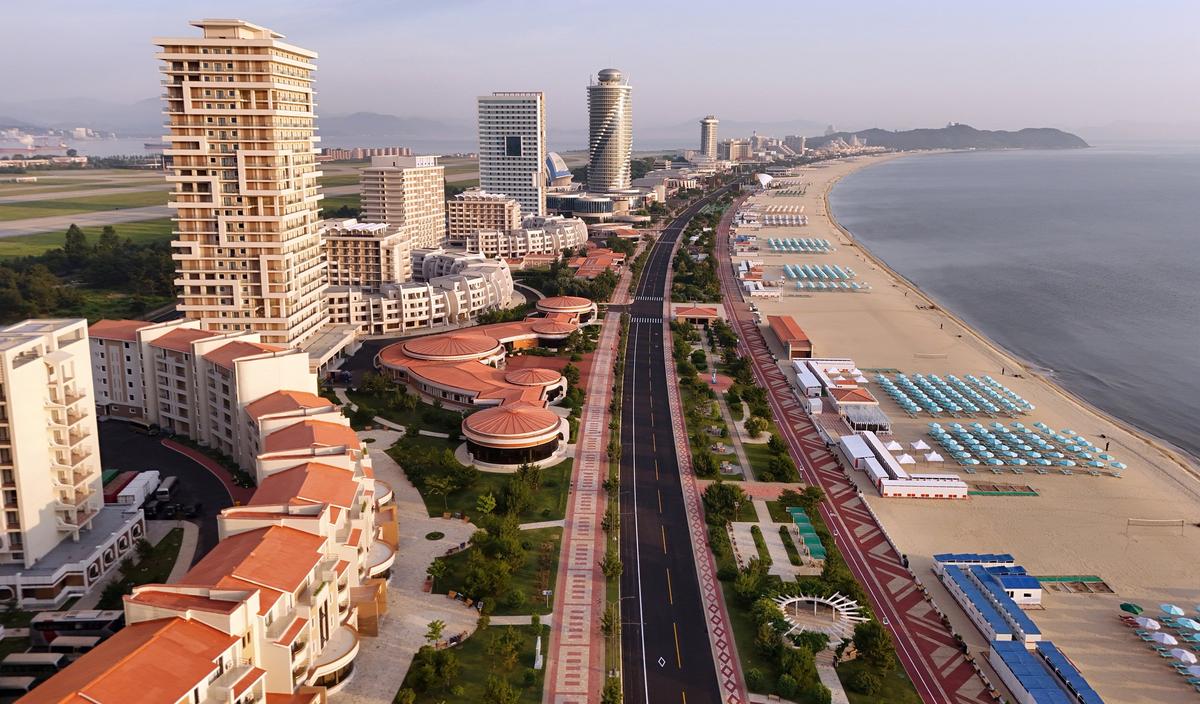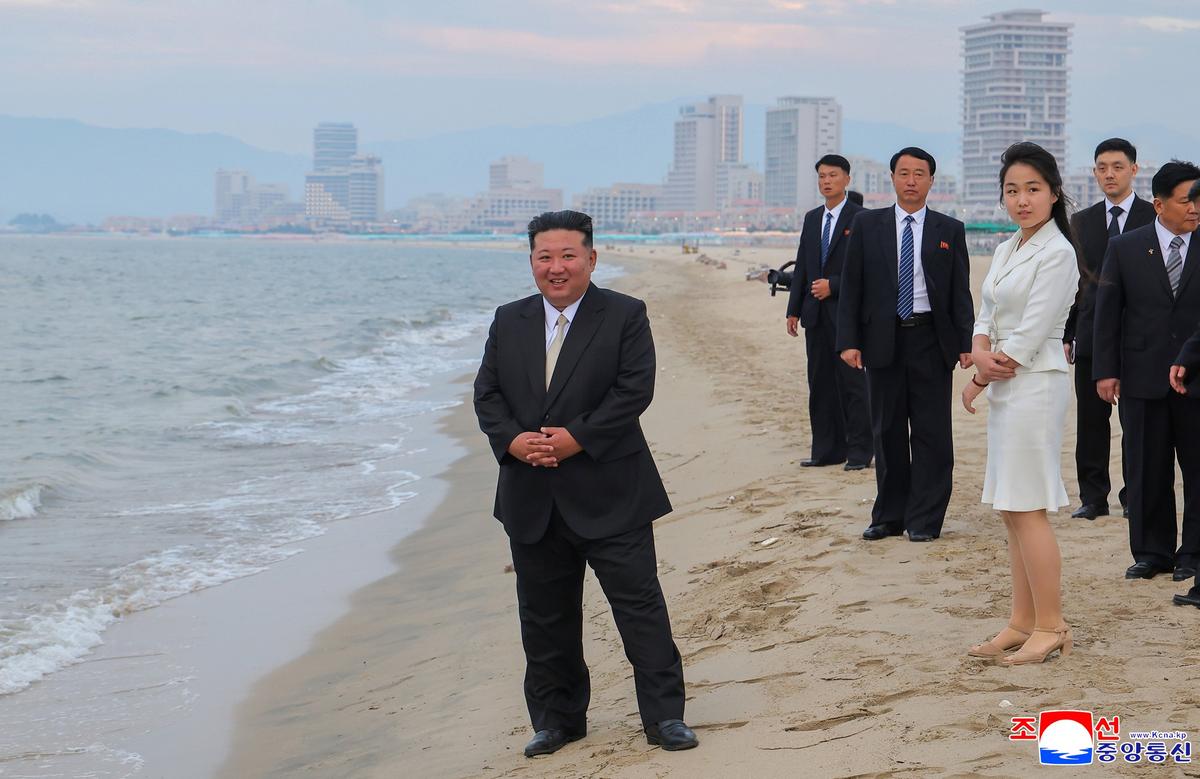



In a bid to replenish state coffers with much-needed foreign currency after closing its doors to foreign tourists for the past four years, North Korea has set its sights on attracting holidaymakers from an ideologically-aligned Russia now that its once lucrative Chinese market now prefers to vacation elsewhere in the Asia-Pacific region.
Late last month, Russian budget carrier Nordwind Airlines operated the first non-stop commercial flight from Moscow to Pyongyang since the 1990s. The connection between the two national capitals, which is scheduled to take place once a month, followed North Korean dictator Kim Jong Un’s unveiling of a newly developed beach resort near the city of Wonsan at the end of June, only to prohibit foreigners from visiting it a week later.
Curiously enough, that ban applied to all foreigners except Russians, 15 of whom visited Wonsan in July, where they were shown around by government minders who ensured that they saw only what they were supposed to, and that food shortages, labour camps and nuclear facilities were not on the itinerary.
During his own visit to Wonsan in mid-July, Russian Foreign Minister Sergey Lavrov encouraged Russians to holiday at the new seaside complex, a reciprocal goodwill gesture for the roughly 14,000 North Korean troops Pyongyang has deployed to bolster the Russian military’s ongoing war against Ukraine, a conflict to which Pyongyang has also supplied as much of 40% of the ammunition used by Russian forces in the past two years.
For the deeply paranoid Kim dynasty, however, foreign tourism remains something of a double-edged sword. While tour packages sold by state-owned travel agencies provide much-needed cash injections for the North Korean elite, the fear that Western travellers could import ideas that run counter to state propaganda is omnipresent.
The incarceration and subsequent death of US college student Otto Warmbier at the hands of the North Korean regime in 2016 was a case in point. The 21-year-old undergraduate was detained en route back to the United States and handed a 15-year prison sentence for stealing a propaganda poster from a cordoned off section of his Pyongyang hotel.

Newly built hotels line the beach at the Wonsan Kalma Coastal Tourist Zone in North Korea, 24 June 2025. Photo: EPA/KCNA
Despite the Trump administration ultimately securing his freedom, Warmbier was already in a vegetative state when he was released a year and a half later, sparking accusations that he was tortured in prison, and died shortly afterwards.
Before the coronavirus pandemic, an estimated 300,000 Chinese nationals visited North Korea annually, — 90% of the country’s foreign tourists — until Pyongyang slammed the door shut to all foreigners for four years in 2020.
In that time, travel patterns in Asia have shifted significantly, with Chinese passport holders now enjoying easy access to Japan, South Korea, New Zealand, Thailand and Malaysia, dampening the appeal of taking an expensive vacation to a country that’s even more repressive than the People’s Republic.
The US under Trump has adopted a hardline, hawkish approach toward North Korea, which it still designates as a state sponsor of terrorism
Russians, on the other hand, are nowhere near as spoiled for choice when it comes to holiday destinations, and in the interests of averting a repeat of the Otto Warmbier tragedy, it’s hardly a surprise that the North Korean government has decided to focus on attracting visitors from its closest ally instead.
In February 2024, almost 100 Russian journalists and travel influencers were the first foreigners in four years allowed to visit North Korea following its unprecedented closure, and to their credit, they were impressively frank about the suffocating restrictions they were subjected to by their guides as well as North Korea’s other obvious shortcomings as a travel destination.
By contrast, the 15 Russian journalists and influencers who travelled to the country this summer to showcase the new beach complex near Wonsan were careful to toe the party line, and dutifully sang the praises of Pyongyang’s modern architecture, Wonsan’s pristine beaches and the local cuisine they were treated to.

North Korean dictator Kim Jong Un visits the Wonsan Kalma Coastal Tourist Zone, 24 June 2025. Photo: EPA/KCNA
With the exception of a brief period in 2018–19 when Washington and Pyongyang engaged with each other diplomatically for the first time in decades and Donald Trump held two entirely fruitless summits with Kim Jong Un, the US under Trump has adopted a hardline, hawkish approach toward North Korea, which it still designates as a state sponsor of terrorism.
The pariah state has also been blacklisted by the Financial Action Task Force, the global money laundering and terrorist financing watchdog, making any individual or organisation caught bankrolling Bureau 39 — the Kim family’s unofficial slush fund — fair game for secondary sanctions. Indeed, the rationale behind the choice of Nordwind Airlines to operate the new monthly flight to Pyongyang rather than national airline Aeroflot was to avoid the latter being denied US landing rights, as a resumption of direct Moscow–New York flights was the subject of recent discussions.
Russia has little left to lose from openly propping up the beleaguered North Korean economy
As the most sanctioned country on Earth, Russia has little left to lose from openly propping up the beleaguered North Korean economy and cultivating closer people-to-people cooperation at the grassroots level. If anything, having Pyongyang’s upper echelons almost exclusively reliant on trade with Moscow to keep their heads above water serves the Kremlin’s long-term interests and allows Putin to accrue a degree of leverage over Kim Jong Un.
Putin is quite prepared to use the Russian population as a means of exerting economic pressure on other countries in the wake of a major diplomatic row, as he demonstrated in 2015 when he banned Russian tourists from visiting Türkiye as retribution for orders given by President Recep Tayyip Erdoğan to shoot down a Russian fighter jet that strayed into Turkish airspace.
Notwithstanding the risk of similarly punitive measures being employed against Kim Jong Un should he ever become uncooperative, the prospect of earning vital hard currency without first having to make any compromises on his nuclear programme or putting up with finger-wagging over his horrific human rights record is too sweet a deal for the North Korea dictator to pass up.
Saahil Menon is a Dubai-based freelance journalist. Views expressed in opinion pieces do not necessarily reflect the position of Novaya Gazeta Europe.
